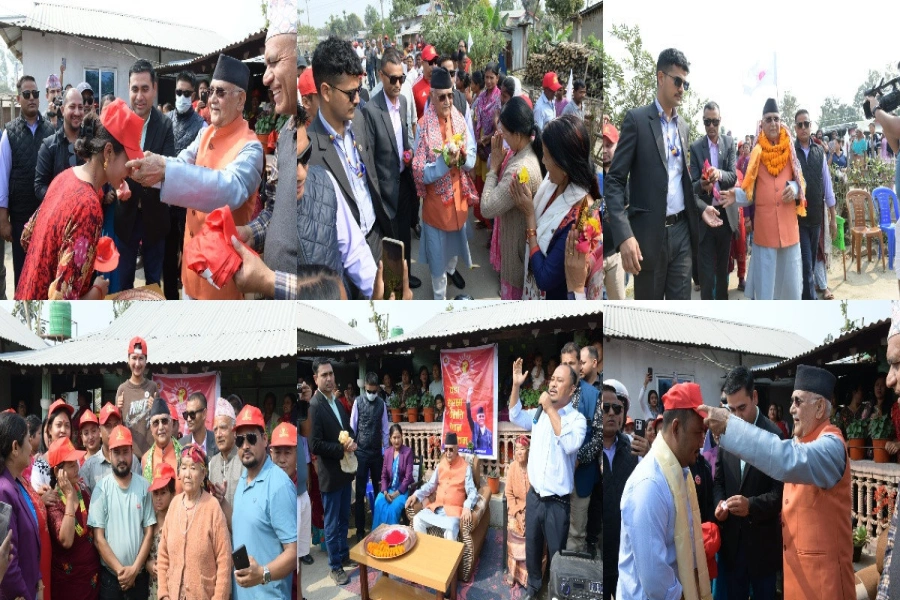KATHMANDU, April 18: In the current session of parliament, the bill to amend the Commission for Investigation on Enforced Disappeared Persons, Truth and Reconciliation Act, 2014 (2071 BS) is ready to be passed on a 'fast track'. However, this bill has not been able to proceed in parliament. This is being discussed continuously between the three major political parties.
However, the bill is not even included in the possible agenda of the meeting of the House of Representatives on March 19. This shows that the bill still needs to be approved. However, if the agreement is delayed for a few days, there will be a situation where the bill will have to be abandoned and the parliament session will have to end. Due to the constitutional provision that the annual budget must be brought on May 29, the winter session has to be concluded and the monsoon session has to be convened. Since the budget has to be brought 15 days after the end of the pre-budget discussion, if we keep that time in mind, now there will be a situation where the monsoon session will have to be called after the third week of April.
An official said that although no time has been set for the period of calling the next session after the end of one session, the session should be completed within the third week of April to prepare for the next session.
Conflict victims urge parliament to revise Transitional Justice...

Due to the fact that parliament has no business, it is becoming difficult to prepare the agenda for parliament, but due to the Transitional Justice (TJ) bill, the parliament session has continued. In the meeting of the House of Representatives on March 19, the agenda was set for the consideration of the Commission for the Investigation of Abuse of Authority (Third Amendment) Bill, 2077 BS received from the National Assembly to submit the annual report of the National Information Commission 2078-079 BS. Only after the National Assembly passes the bill passed by the House of Representatives, it is sent to the President for verification. In the Monday meeting of the National Assembly, only the agenda to discuss the monitoring and evaluation report 2079 BS of the implementation of the annual report of the National Concern and Coordination Committee for the financial years 2075-076 BS, 076-077 BS, 2078-078 BS was discussed. The session of the National Assembly is also ongoing due to the transitional bill. Officials say that it is difficult to fix the agenda in this HoR meeting as well.
The meeting of the National Assembly has also been called for Tuesday. However, there is confusion about the agenda of the meeting. Meanwhile, National Assembly Chairman Ganesh Prasad Timilsina is scheduled to go to Russia on a six day visit from Wednesday. It is said that he is preparing to adjourn the meeting until his return. From which the House of Representatives will not only pass the bill on the 'fast track'. As this bill will also go to the National Assembly, even though the House of Representatives has agreed to pass it on a fast track, it seems that the National Assembly will not be able to pass it before the third week of April. In the National Assembly too, time should be given for theoretical discussion and revision of this bill. "Now is the time to prepare for the monsoon session after the winter session, the time is running out, if there is a delay in passing the bill, there is no possibility of passing the bill in this session," said an official.
On Monday, Prime Minister Pushpa Kamal Dahal, Speaker Devraj Ghimire, Nepali Congress President Sher Bahadur Deuba and UML Chairperson KP Oli held a discussion in Balkot regarding the passing of the transitional justice bill.
A total of 28 amendment proposals have been registered on this bill. UML has advanced the argument that if the bill is passed without addressing some important amendments, the conflict victims will not get justice. The bill provides for general amnesty for murder. The ruling parliamentarians and the opposition parliamentarians have filed amendment proposals saying that general amnesty should not be given to the guilty of murderers.






































